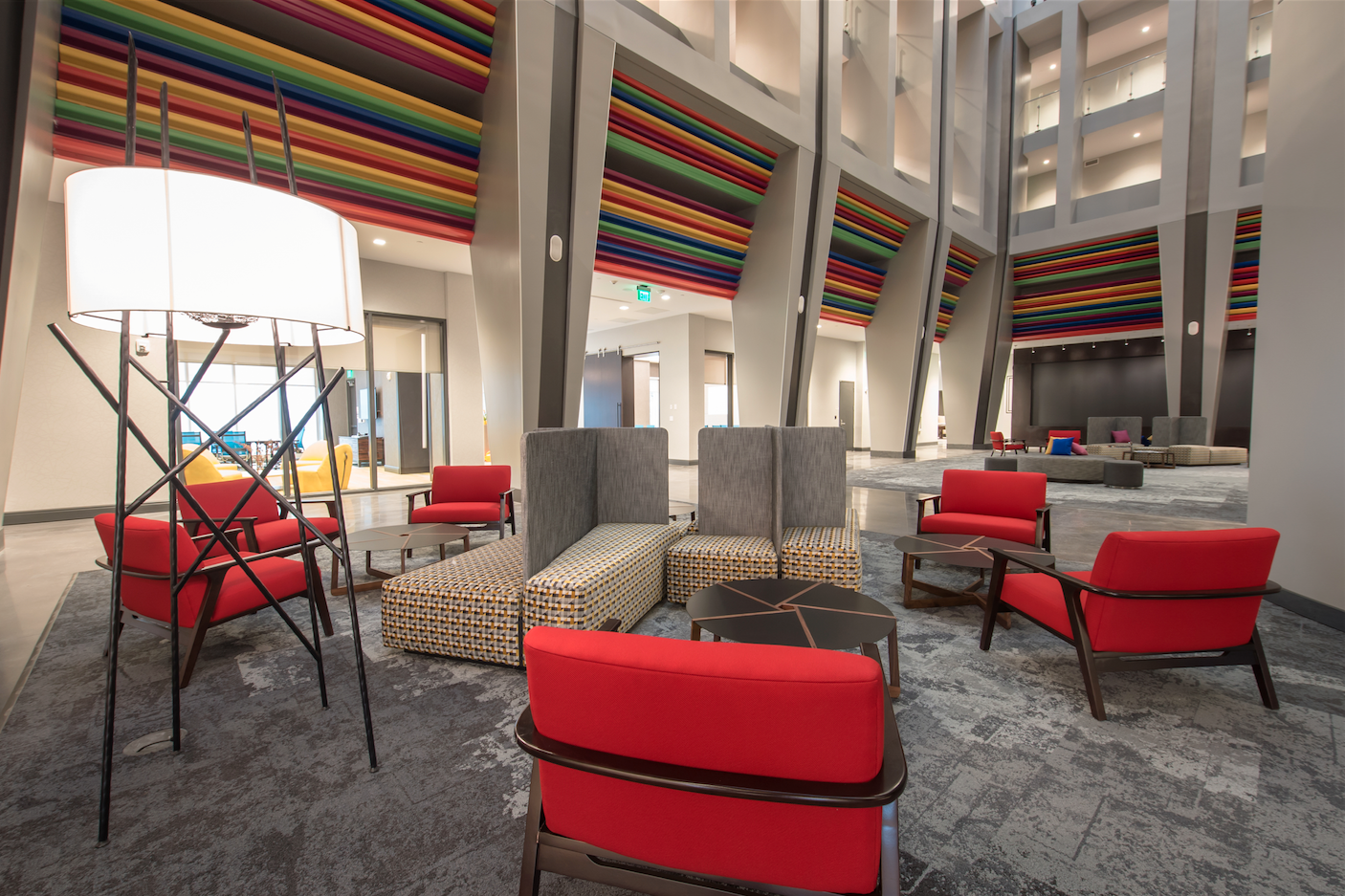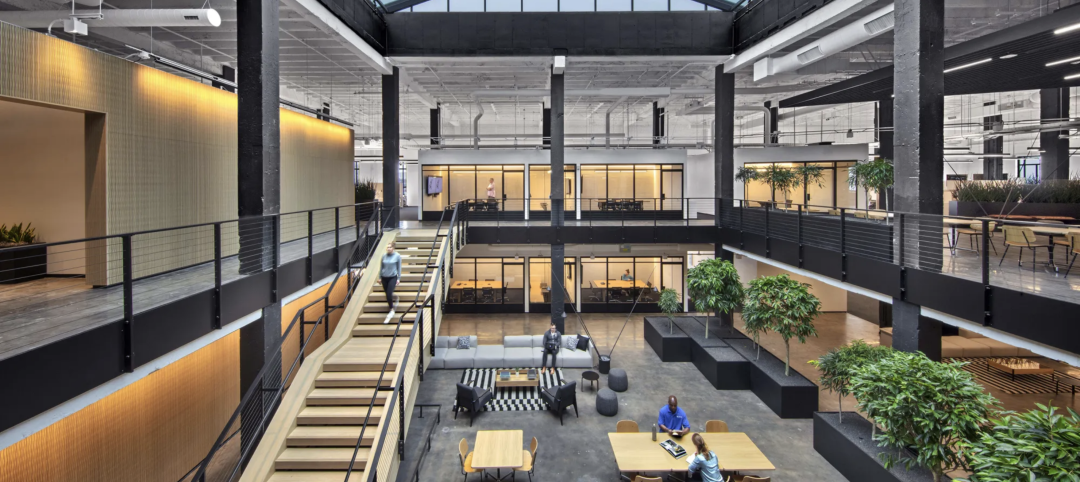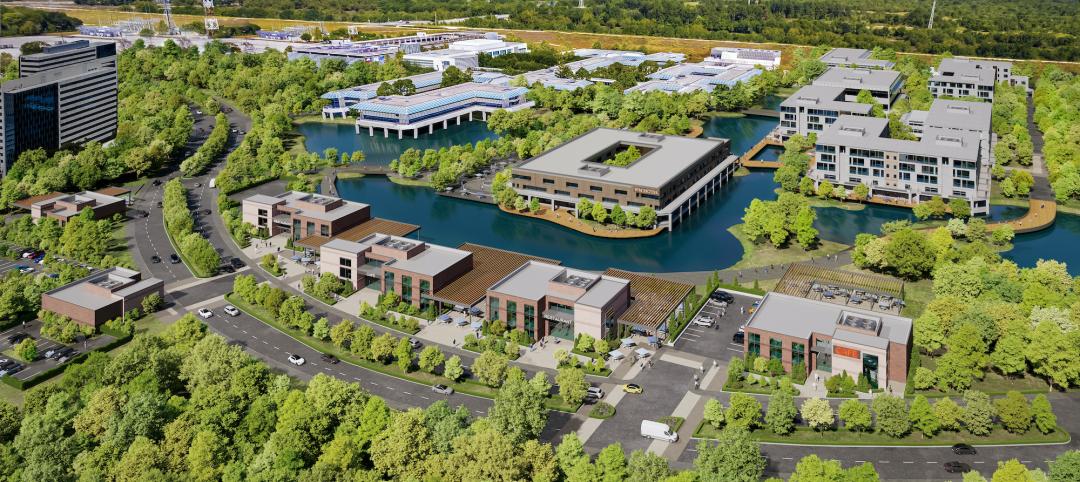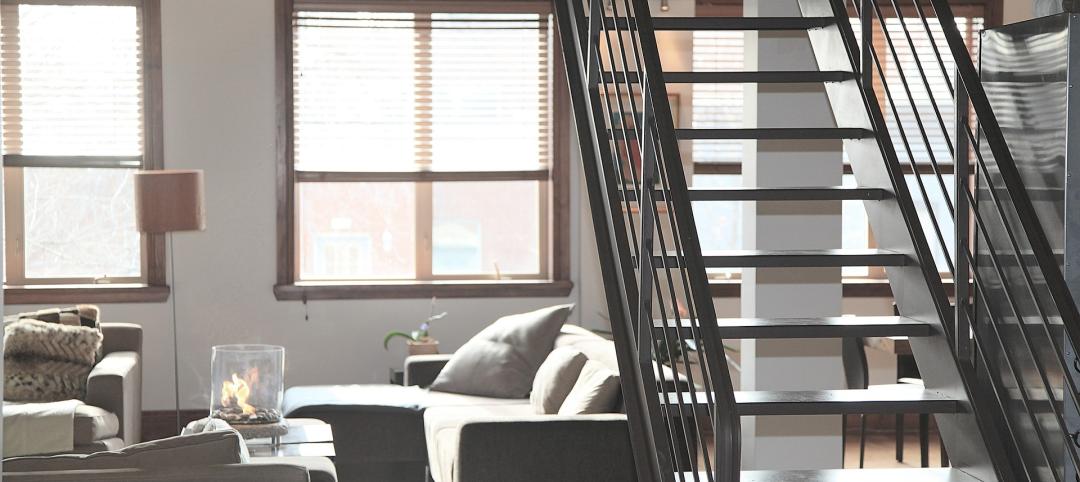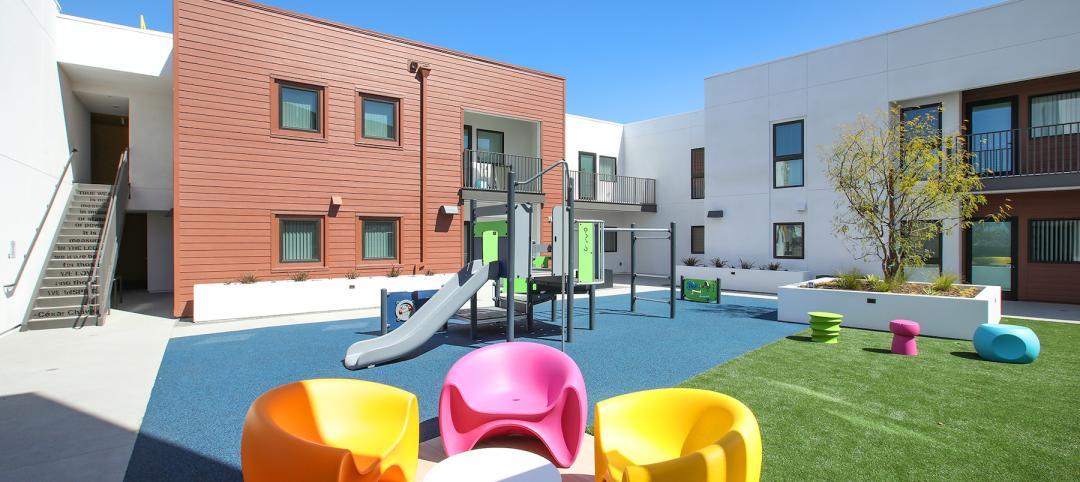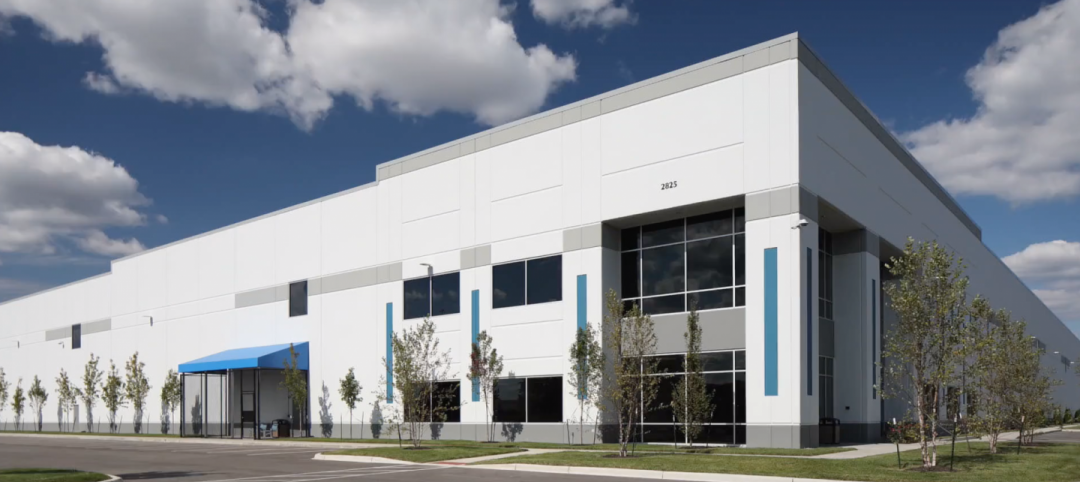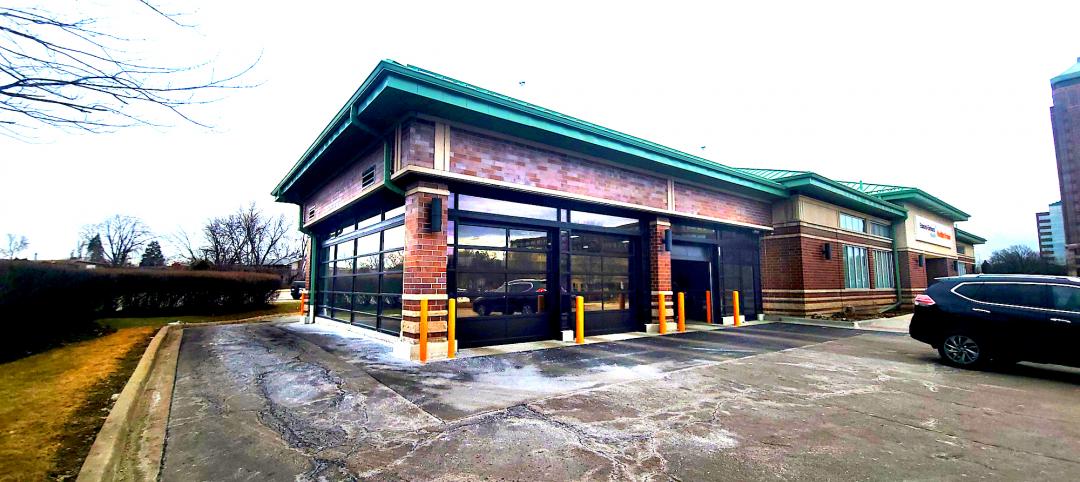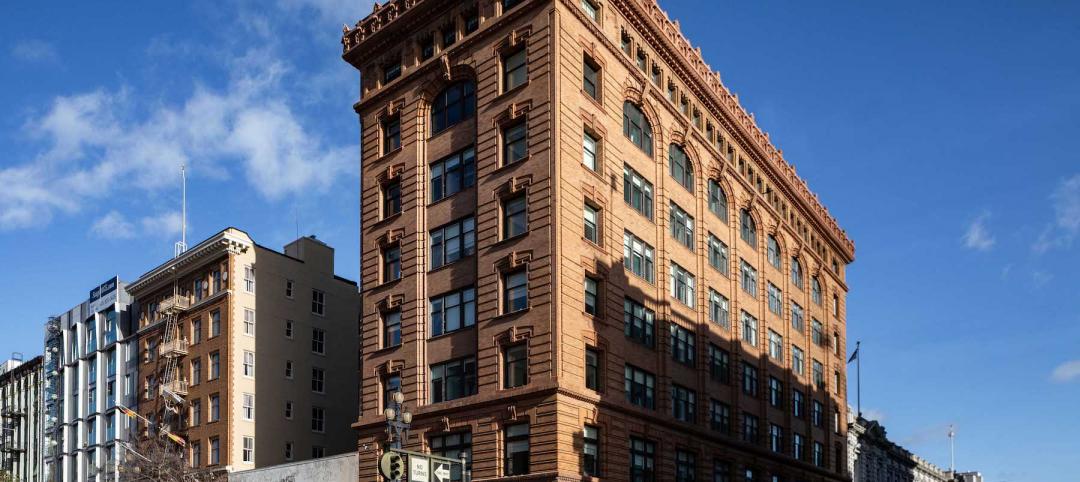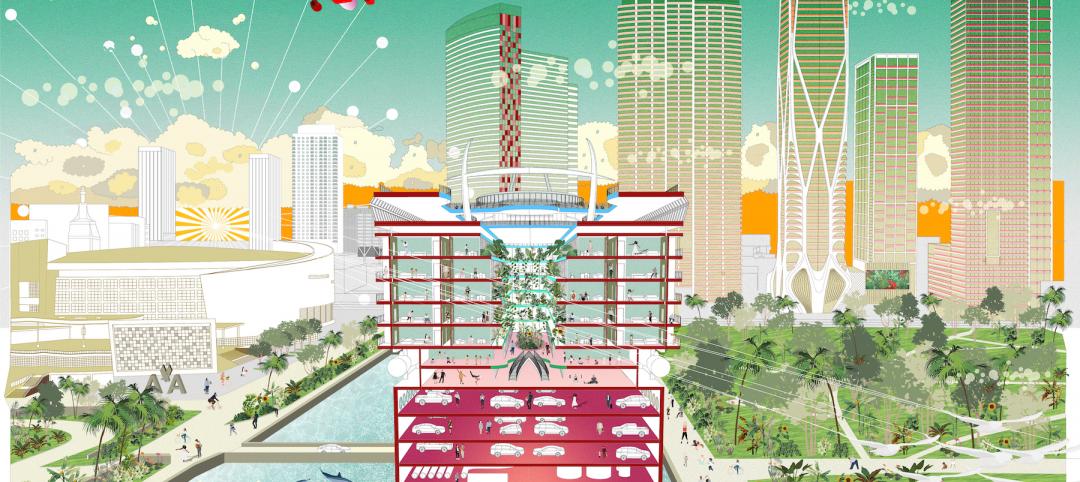It doesn’t look like much from the outside. But as they say, you can’t always judge a book by its cover.
And more interesting design flashes take over inside The Summit, A Dolce Hotel, featuring a 5,743-sf art gallery and an 11,600-sf rooftop terrace and garden space, which leads into a 4,750-sf ballroom that’s one of 19 meeting and banquet areas.
This 426,000-sf, 239-key lifestyle hotel and conference center, which opened adjacent to downtown Cincinnati on April 17, is the first hotel that Dolce Hotel and Resorts by Wyndham designed from scratch. On top of that, it’s an adaptive reuse of a parking garage that itself was once a warehouse-distribution facility.
“I think it is easily the top hotel/conference center combination in southwest Ohio,” says Chris Hopper, Executive Vice President and General Manager for Skanska Ohio, the project’s GC. RBM Development was the developer, Samach + Seo Architecture the design architect, CR Architecture & Design the AOR, and Hirsch Bednar Associates the interior designer.
Transforming a 50-plus-year-old structure into an $80 million hospitality venue, however, was not a foregone conclusion. The warehouse portion, once a NuTone factory, had been built in two stages, 1959 and 1976, and the city had no structural drawings for the 1959 work, which required the hotel’s Building Team to spend more than $100,000 on soil and load tests. Holes had to be drilled into the building’s columns to see how much steel they contained.
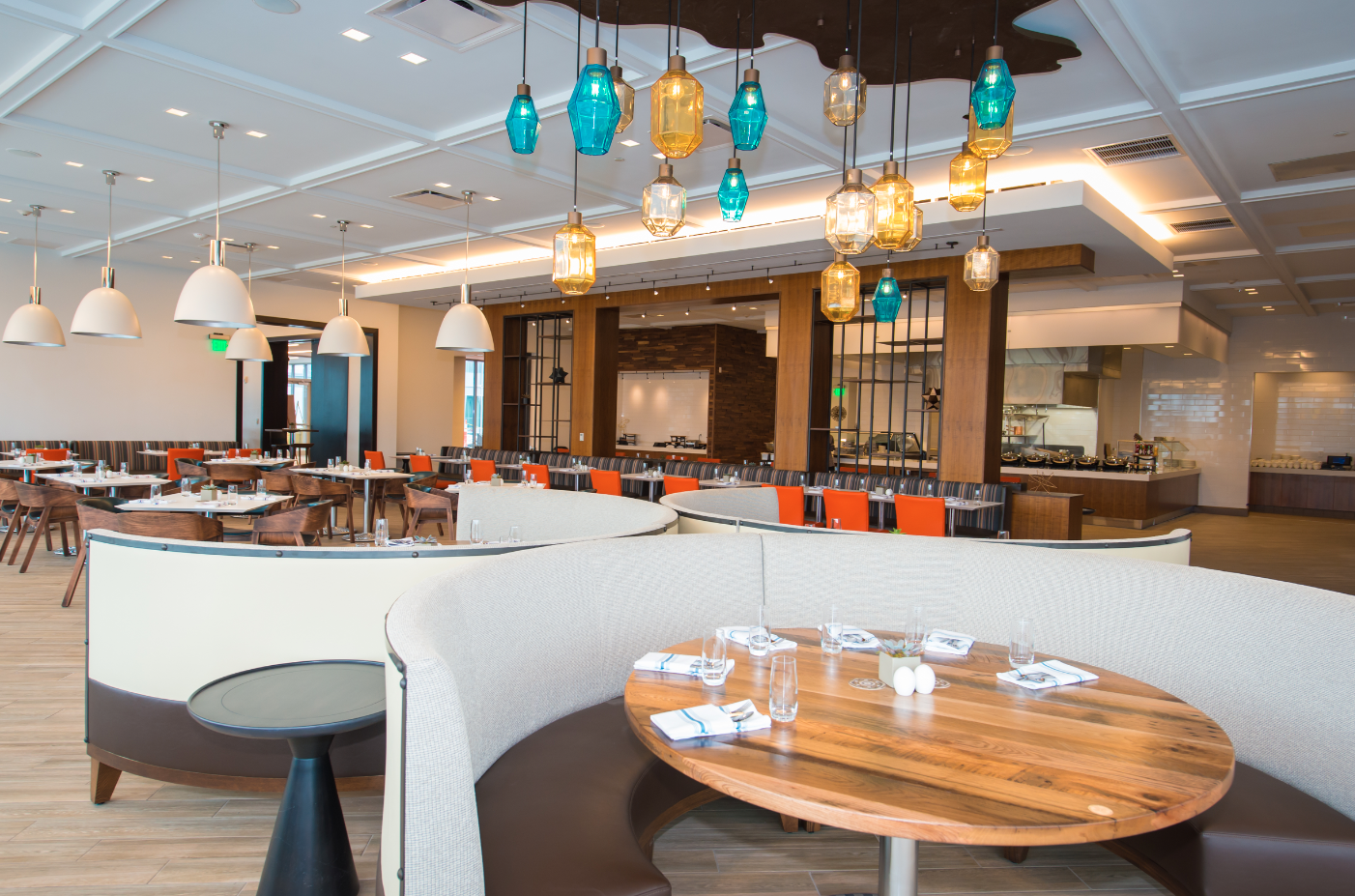 The hotel’s restaurant, bar, and conference and meeting rooms are all located on its roof terrace, which includes 19 meeting spaces with 34,000 sf. Photo: Mike Howard Photography
The hotel’s restaurant, bar, and conference and meeting rooms are all located on its roof terrace, which includes 19 meeting spaces with 34,000 sf. Photo: Mike Howard Photography
Seth Barnhard, Principal and program manager for Sitement, the owner’s rep, says there were “prolonged discussions” about whether just to tear down the parking garage and build new. “It took months of VE [value engineering] to get the cost down to where [reconstruction] made sense.”
On the plus side, the existing building offered an 85,000-sf floorplate. And the parking garage had already been stripped of its cladding to the concrete, so the Building Team pretty much knew what it was working with.
The demolition part of this job took around four months, during which Skanska cut through the structure to create the hotel’s atrium space, which was probably the most important design decision on this project.
The nine-story atrium—a first for a Dolce-branded hotel—was one of three design options that Samach + Seo presented for this project, says Raphael Samach, AIA, Partner with the New York-based firm. The atrium was selected, he explains, because it allowed the structural loads to be redistributed while giving the hotel its greatest height.
Dolce is marketing The Summit as a “lifestyle” hotel, and Barnhard says its design is meant to convey an “ongoing sense of surprise” for guests who enter through a porte cochere that leads into an art-adorned lobby—whose grey palette is flecked with color accents—and portal to the atrium with four glass elevators.
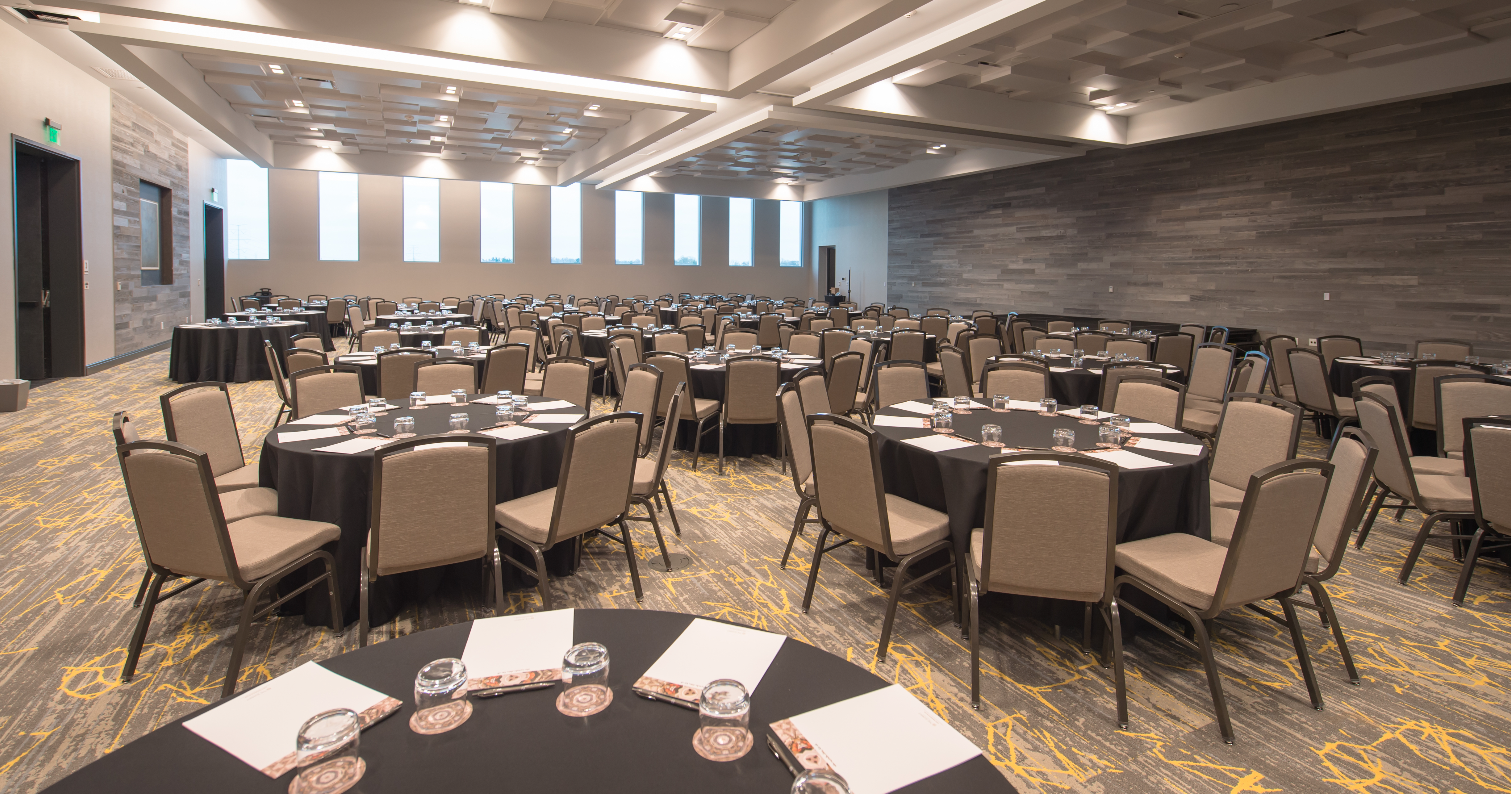 Photo: Mike Howard Photography
Photo: Mike Howard Photography
The terrace on the roof of the hotel’s 200-slot, two-level parking deck is programmed as a destination and “oasis” for guests and visitors, says Samach. The hotel’s restaurant, bar, conference and meeting rooms are all located on the roof. Servicing the meeting rooms are nourishment “hubs,” which offer a variety of snacks and refreshments during most of the day. (The hotel has two beehives on the roof to make its own honey, and this spring intended to plant its own herb garden.)
However, Skanska still needed to install micro piles in the basement to fortify the existing building that’s supported by an unusual mixture of spread piles and piers, says Jon Budde, Skanska’s project manager.
RMB is an acronym for Red Bank Madison, a development company owned by August Troendle, CEO and Founder of Medpace, a clinical research organization. Next to The Summit, Medpace just started construction on a 250,000-sf headquarters building. The entire complex, which sites on 30 acres, will include 250 multifamily residential units, a walking path, and possibly a Food Hall.
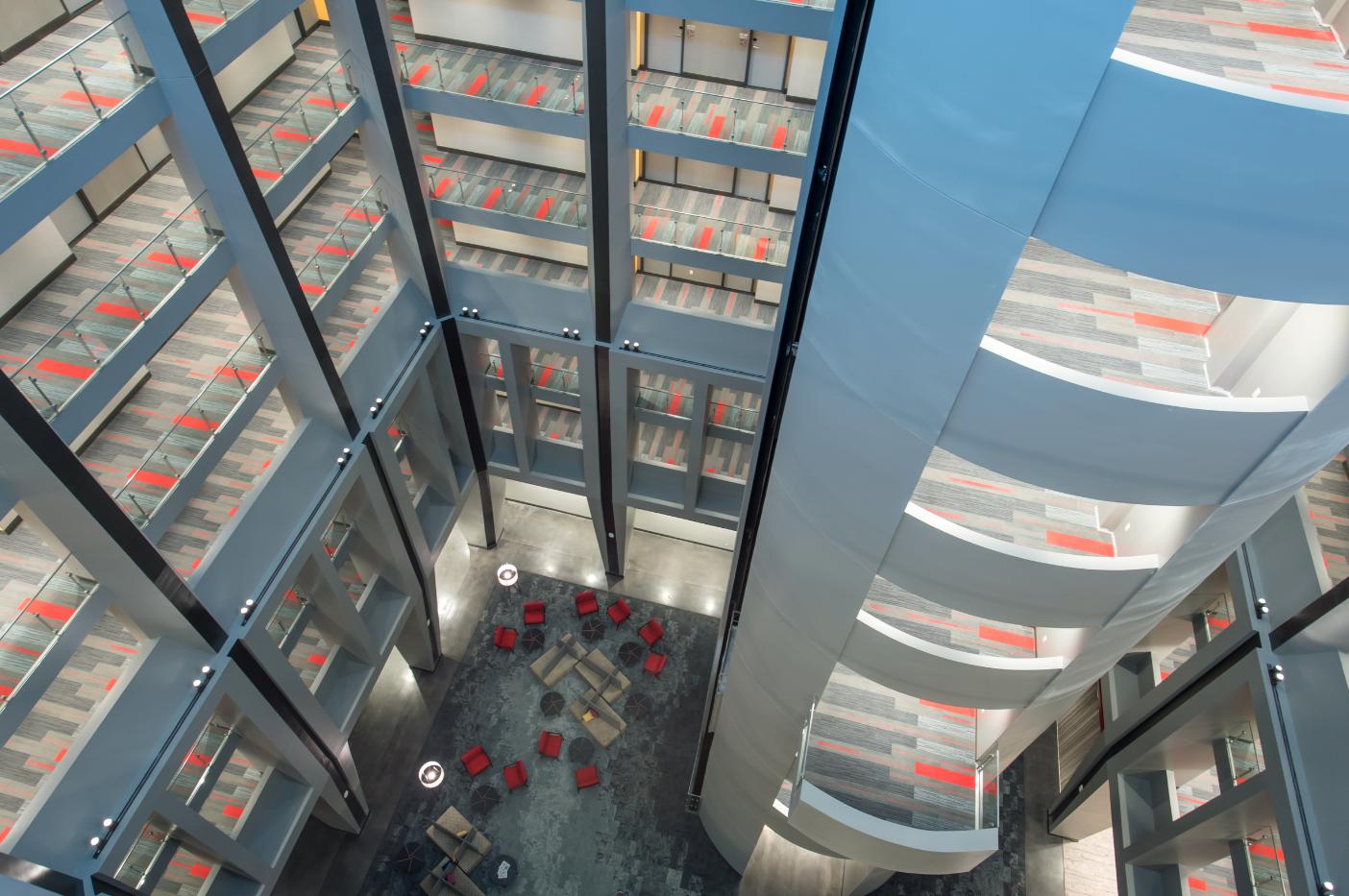 Photo: Mike Howard Photography
Photo: Mike Howard Photography
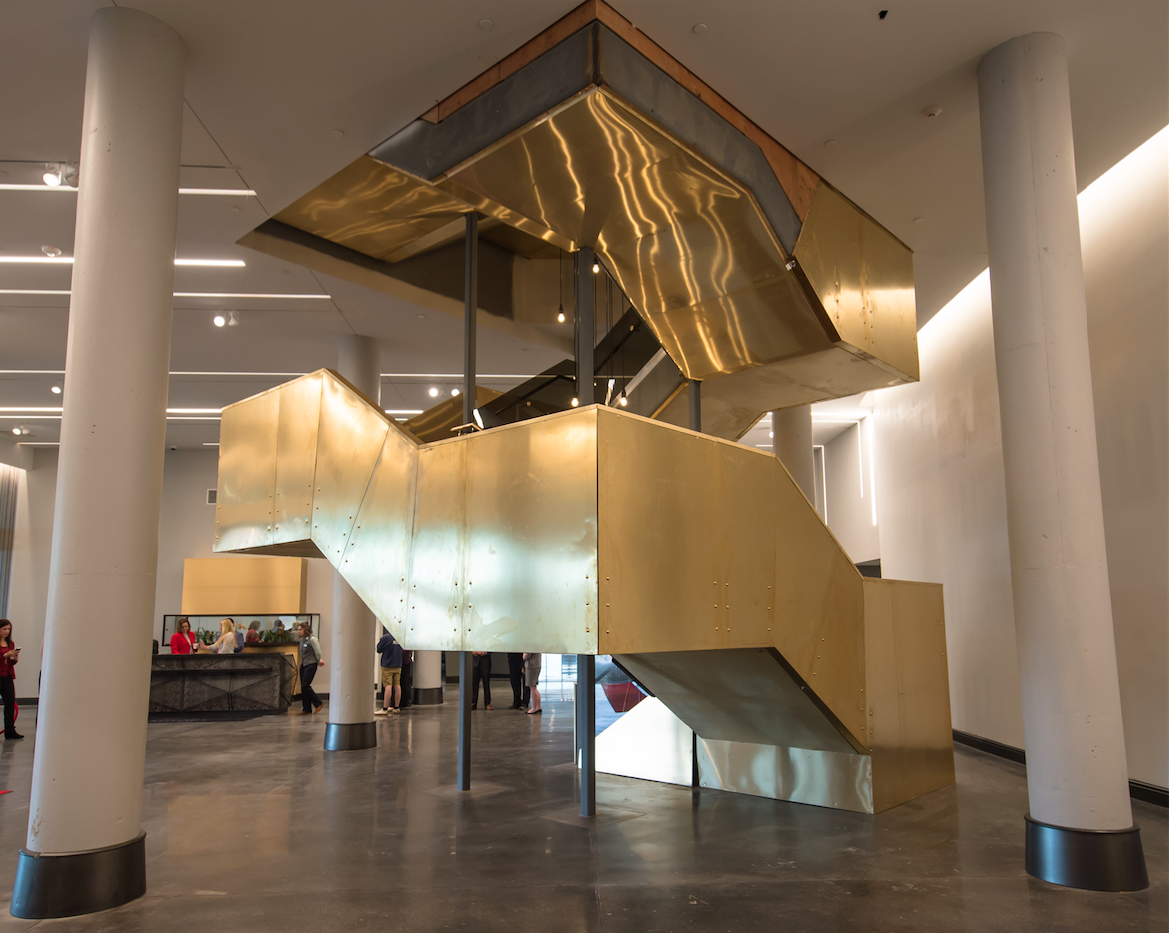 Photo: Mike Howard Photography
Photo: Mike Howard Photography
Related Stories
Adaptive Reuse | Dec 9, 2022
What's old is new: Why you should consider adaptive reuse
While new construction allows for incredible levels of customization, there’s no denying that new buildings can have adverse impacts on the climate, budgets, schedules and even the cultural and historic fabrics of communities.
Mixed-Use | Dec 6, 2022
Houston developer plans to convert Kevin Roche-designed ConocoPhillips HQ to mixed-use destination
Houston-based Midway, a real estate investment, development, and management firm, plans to redevelop the former ConocoPhillips corporate headquarters site into a mixed-use destination called Watermark District at Woodcreek.
Multifamily Housing | Nov 29, 2022
Number of office-to-apartment conversion projects has jumped since start of pandemic
As remote work rose and demand for office space declined since the start of the Covid-19 pandemic, developers have found converting some offices to residential use to be an attractive option. Apartment conversions rose 25% in the two years since the start of the pandemic, with 28,000 new units converted from other property types, according to a report from RentCafe.
Multifamily Housing | Aug 17, 2022
California strip mall goes multifamily residential
Tiny Tim Plaza started out as a gas station and a dozen or so stores. Now it’s a thriving mixed-use community, minus the gas station.
Urban Planning | Jul 19, 2022
The EV charger station market is appealing to investors and developers, large and small
The latest entry, The StackCharge, is designed to make recharging time seem shorter.
Adaptive Reuse | May 18, 2022
An auto plant in Detroit to get a retread as mixed-use housing
Fisher 21 Lofts could be the largest minority-led redevelopment in the city’s history.
Industrial Facilities | Apr 1, 2022
Robust demand strains industrial space supply
JLL’s latest report finds a shift toward much larger buildings nearer urban centers, which fetch higher rents.
Healthcare Facilities | Mar 25, 2022
Health group converts bank building to drive-thru clinic
Edward-Elmhurst Health and JTS Architects had to get creative when turning an American Chartered Bank into a drive-thru clinic for outpatient testing and vaccinations.
Adaptive Reuse | Dec 16, 2021
An adaptive reuse of a historic building in San Francisco was worth the wait
A five-year-long project included extensive restoration.
Adaptive Reuse | Nov 1, 2021
CallisonRTKL explores converting decommissioned cruise ships for housing
The rapid increase in cruise ship decommissioning during the last 18 months has created a unique opportunity to innovate and adapt these large ships.


